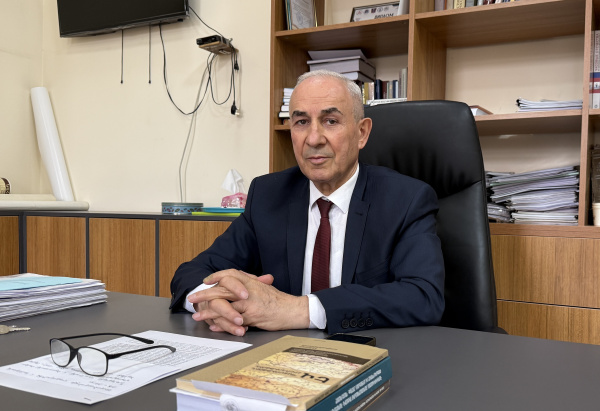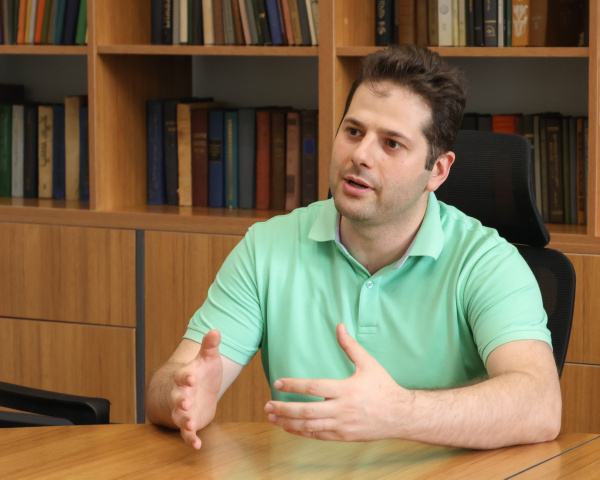The curriculum of the "Caucasus Studies" bachelor's program at YSU Faculty of History has undergone a comprehensive revision in recent months, taking into account both modern academic standards and labor market trends. To learn more about the program’s new structure, linguistic policy updates, and the significance of its research component, we spoke with Eduard Zohrabyan, Associate Professor, PhD in History, Head of the Chair of History of Neighboring Countries of Armenia and "Caucasus Studies" educational program, and Hayk Mkhoyan, Associate Professor, PhD in History, from the same chair.

Discussing the need for changes in the curriculum, Eduard Zohrabyan stated: "Over time, it became evident that revising certain subjects, clarifying course titles, and introducing new research-oriented courses were necessary to enhance the program’s effectiveness. Our approach has been based on two core principles: ensuring methodological soundness and increasing the program’s practical applicability by equipping students for their future professional careers."
Hayk Mkhoyan emphasized that the program’s language policy has always been a key component. He noted a recent decline in students’ interest in studying Georgian: "Students increasingly prefer Azerbaijani, due to current geopolitical realities. Nevertheless, we place equal importance on the knowledge of Georgian, as a significant portion of key Caucasus-related literature is available in that language. Therefore, we propose beginning mandatory Azerbaijani language instruction from the first year (spanning five semesters), followed by an elective advanced course on translation methodology. Starting from the fourth semester, students will also begin studying Georgian, which will continue through the eighth semester. Additionally, the course Georgian Translation and Methods will be offered. This will provide students with the opportunity to master two Caucasian languages, significantly enhancing their competitiveness in the job market."
Commenting on the revisions made to courses, the program director noted: "Several history courses have been given more precise titles to better reflect their content. For instance, the course previously titled Armenian History is now Key Issues in Armenian History (Ancient and Medieval Periods). This model has been applied to courses covering the histories of other regions as well. The aim is to help students clearly understand the focus and depth of each course. Similarly, the course Ethnography of the Caucasus has been renamed Ethnography of the Peoples of the Caucasus. The updated curriculum also introduces academic internships, allowing students to work in institutions such as the Matenadaran, archives, and libraries, thus gaining direct experience with research materials."

Dr. Mkhoyan reflected on the rationale behind consolidating certain courses: "In the previous curriculum, the histories of Russia, Turkey, and Iran were taught separately, followed by elective courses on each country’s policies in the Caucasus. We now propose integrating these into comprehensive courses that combine historical development with an analysis of regional politics. These courses will also include a research component to strengthen students’ research skills."
Eduard Zohrabyan assures that the new curriculum will not only enhance students’ professional preparedness but also increase their employability: "I believe the advanced proficiency in two languages, in-depth source-based knowledge, and the program’s research component are among its most significant advantages."
The updated curriculum for the "Caucasus Studies" bachelor's program will be implemented starting with students admitted in the 2025/2026 academic year.


